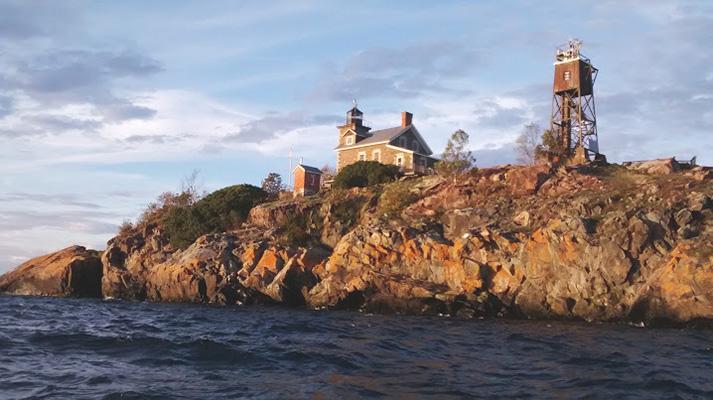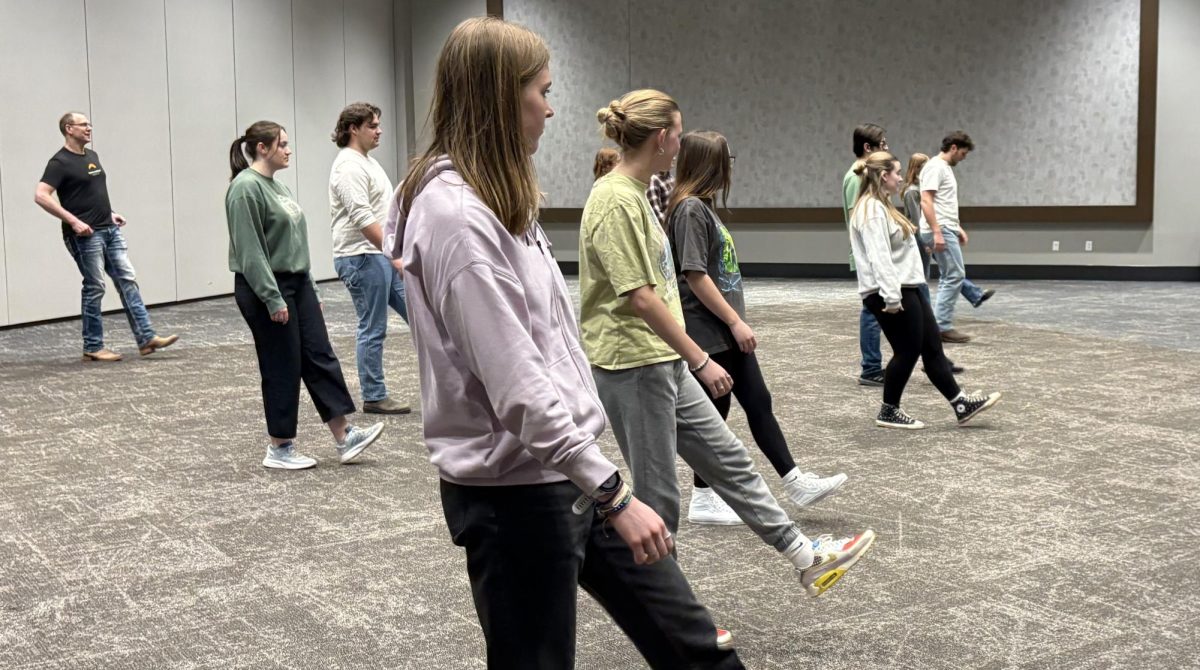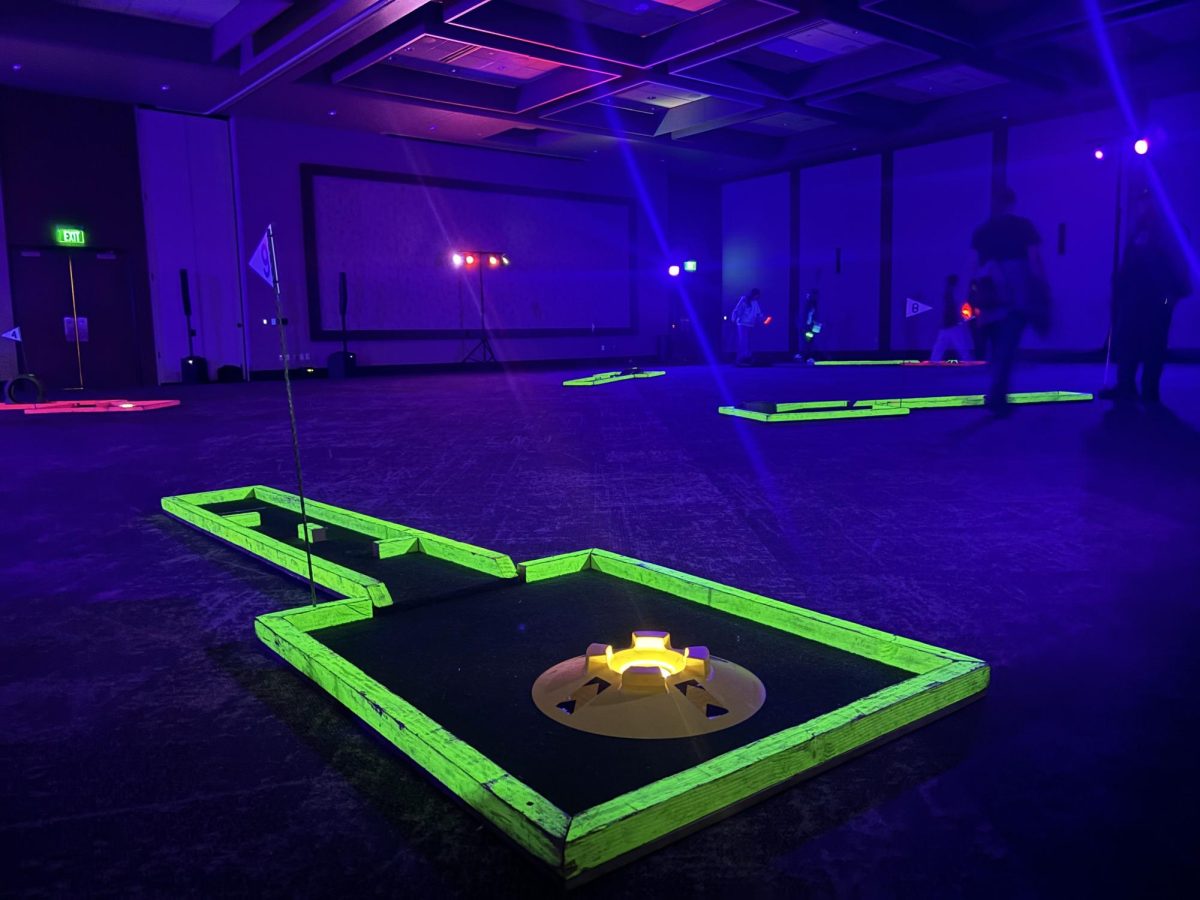Waves crash upon a granite shore, gale-force winds pound windows, and inside the eye of this storm a group of writers compose fiction and poetry, safe inside the walls of a towering lighthouse.
 Tentatively called the “Lake Superior Light Station Field Research Program,” NMU English professor Jon Billman and graduate students Colton Lindsey and Willow Grosz journeyed to the remote Granite Island Light Station for a 3-day writing residency to work on their creative pursuits in the midst of beautiful natural scenery while being isolated on Lake Superior.
Tentatively called the “Lake Superior Light Station Field Research Program,” NMU English professor Jon Billman and graduate students Colton Lindsey and Willow Grosz journeyed to the remote Granite Island Light Station for a 3-day writing residency to work on their creative pursuits in the midst of beautiful natural scenery while being isolated on Lake Superior.
“You’re stuck inside your own head, and all you can do is experience the island and write,” Grosz said. “I liked the quiet, three days to decompress and be out in nature, sit inside and write, and then take a minute to go for a walk, just stepping outside the door and being surrounded on all sides by water and rocks.”
The 2.5 acre Granite Island is 5 miles from the closest shore but 11 miles from the nearest boat launch in Marquette.
Privately owned by Scott Holman, a longtime NMU Board of Trustees member, the island is a registered national historical site, with its stone lighthouse dating back to 1868, renovated in the early 2000s by Holman and his team of craftsmen.
Granite Island has been home to NMU weather monitoring projects and a service link to boost NMU wireless internet to Big Bay, but this was the first writing retreat held there.
Billman, who teaches fiction writing classes, led the charge to convince Holman to allow writers to use the location as well.
“Without [Holman’s] generosity, this wouldn’t have happened,” Billman said.
Billman and his students left at noon Friday, Sept. 9 and returned Sunday evening, Sept. 11.
Holman drove the boat himself, for a 30-minute ride there across mostly calm waters.
The first night, Holman regaled them with stories around the campfire of his own adventurous life as an experienced outdoorsman, diver, and member of the Great Lakes Shipwreck Historical Society. Then Holman returned to the mainland, leaving them alone on the island until he returned Sunday.
During the next days, the writers split up and worked on their separate creative projects, reconvening only for morning coffee in the light tower and brats on the barbecue.
“We wrote like mad men,” Grosz said.
Lindsey finished a draft on his first poem in over a year and got ideas for eight new realistic fiction stories.
He found inspiration in the history of the place, especially in the three lightkeepers in the past that drowned at Granite Island. Lindsey poured over the lightkeepers’ log books for hours reflecting on the hauntingly emotionless entries that he called “robotic.”
“There were just two short lines saying, ‘This keeper was lost. Regular duties performed,’” Lindsey said.
Lindsey grew up in a family of trout fishermen. Nature has always been important to him.
“From the beginning, I’ve craved being in the outdoors,” Lindsey said. “It’s only natural it’d be in my writing. This trip really put me back into my element. It was like my writing got to breathe again.” Granite Island is mostly cliffs and crevasses covered in lichen, glacial grooves, with small grassy areas, abundant flowers like tiger lilies, birds and at least one raccoon.
Grosz took numerous photographs and wrote vivid descriptions of the scenery for later use in her writing.
She is working on a short fiction collection inspired by her own family’s roots in Alaska, a land with a similar sense of outdoor seclusion. This trip helped get her into that mindset.
“It’s not only the solidarity of being out there, it’s not being able to go home even if you wanted to,” Lindsey observed. “You were stuck. Even if they wanted to come get us with the boat, I don’t think it would’ve been possible—for Saturday at least.”
A storm with gale-force winds raged Saturday. The students watched from inside the lantern room, with its circular array of windows from which one can spy the Keweenaw, Munising lighthouses, Stannard Rock Light, and Marquette city lights.
“It was incredible, a 360-degree view of the storm from 100 feet above the surface of the water—10-foot waves,” Billman said. “It’s an experience I don’t know how else you’d get. It’s literally seeing the storm from the inside.”
Plans for the future are still in the works, but the next trip will have to be inland, Billman said, the water will be much too rough until next year.
Billman and the English department hope to someday open up writing residencies like this Granite Island trip to undergraduate students as well, but nothing official has been announced.






























